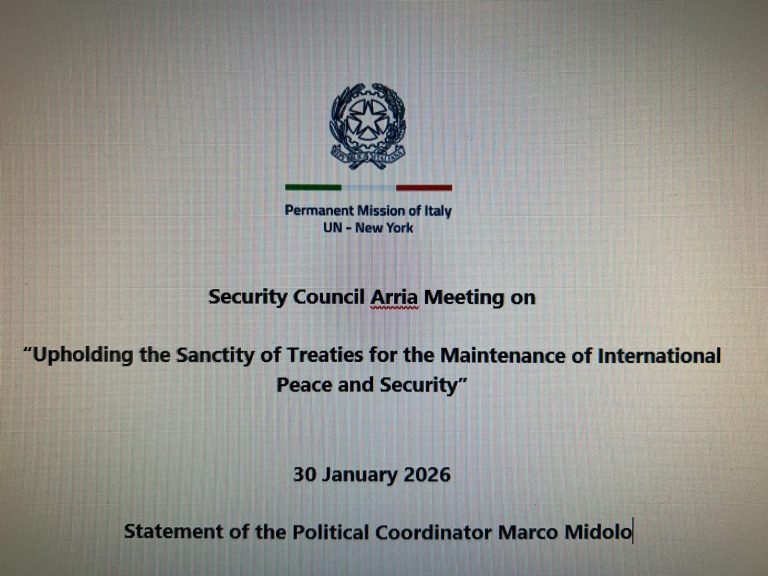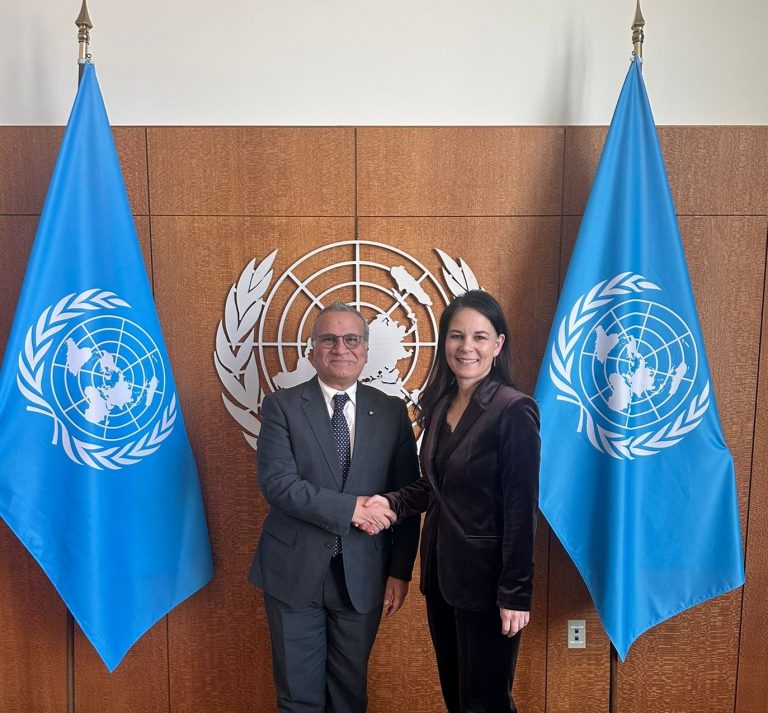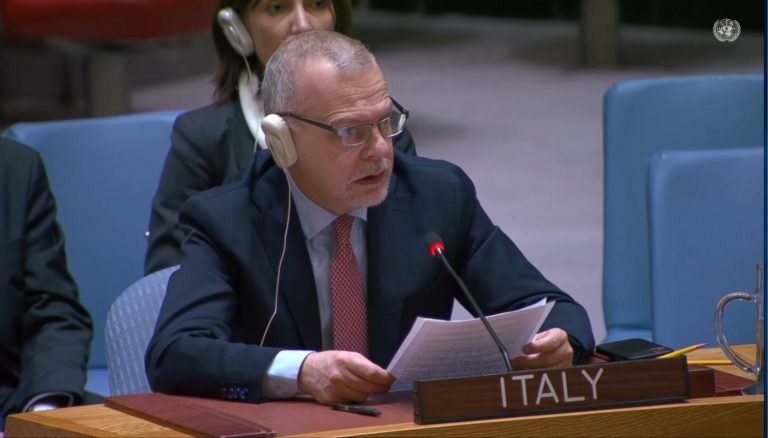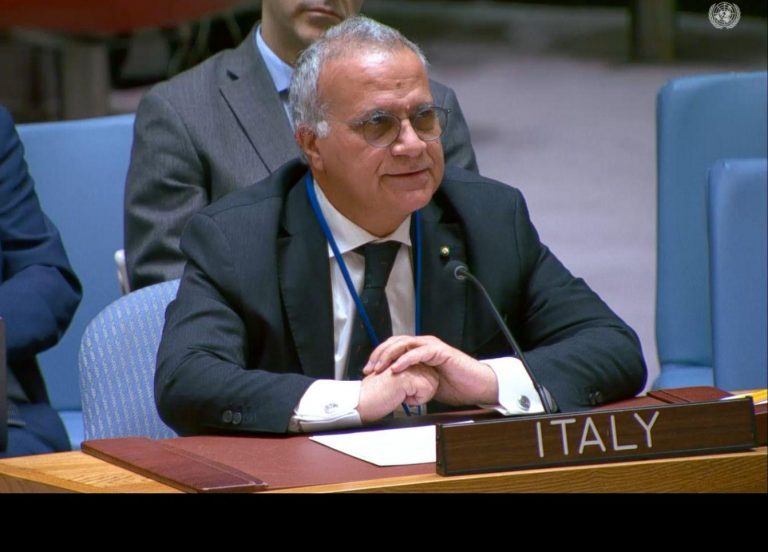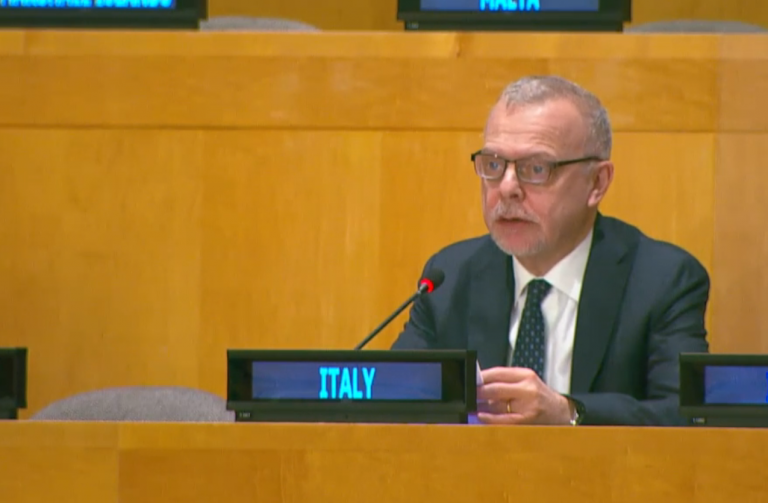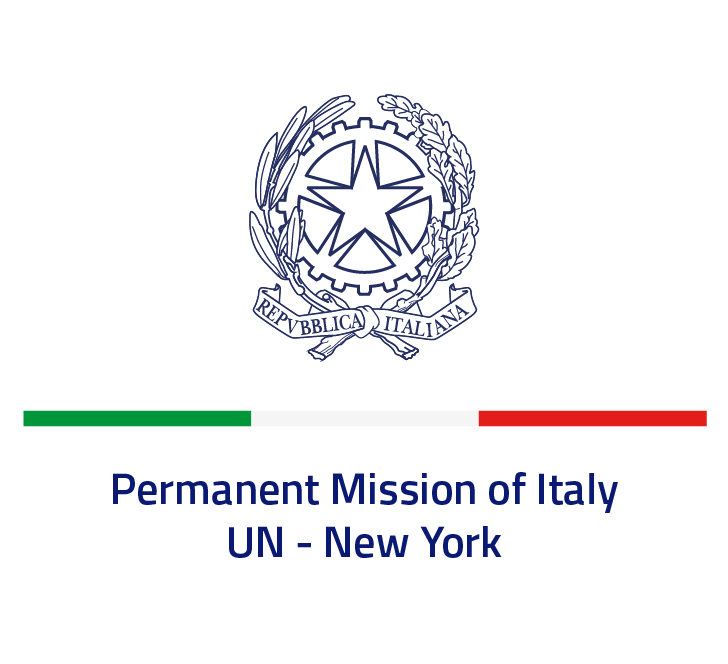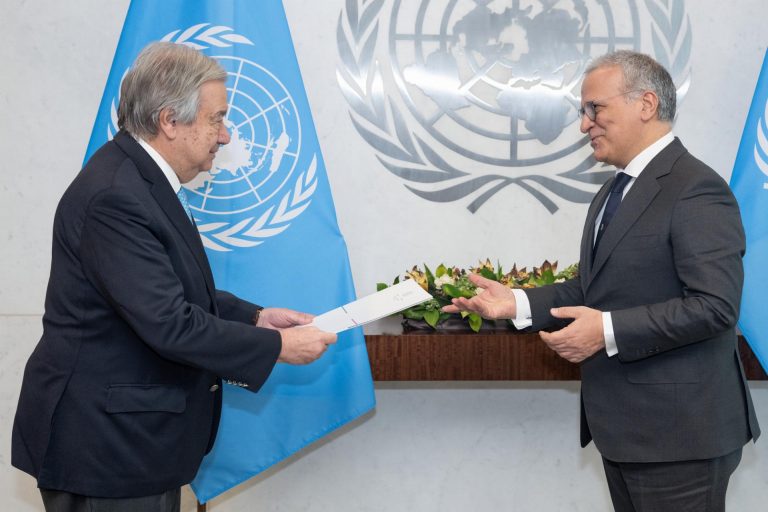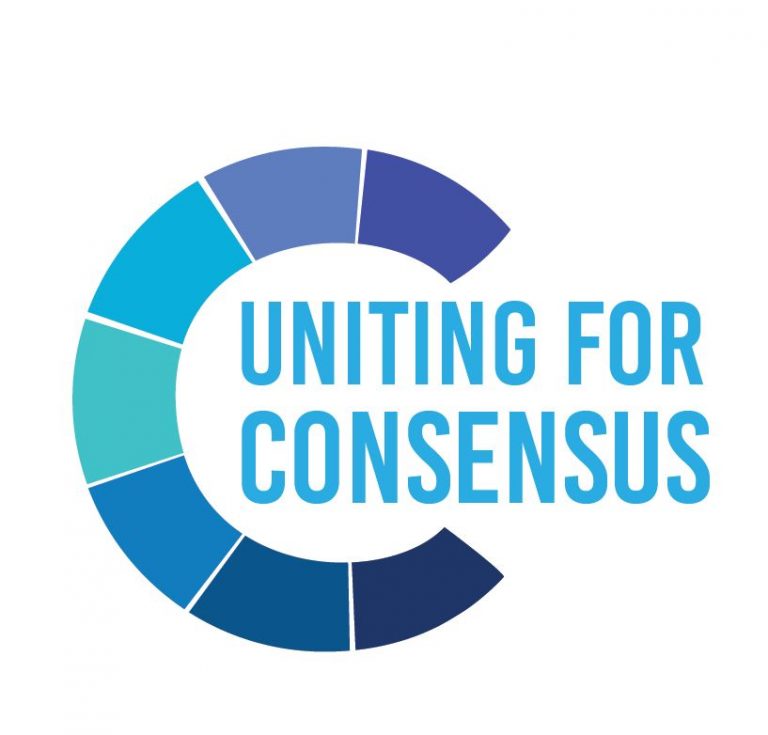Statement delivered by the Minister of Justice, Hon. Andrea Orlando, at the High-level debate on Transnational Organized Crime (in observance of the 25th anniversary of the assassination of Judge Giovanni Falcone) —
Transnational organized crime evolves, sheds its skin, and reacts to changes in society and the economy. This is why it is so important for the action of preventing and countering it to keep pace. And to keep pace, as Giovanni Falcone used to say, it needs the legs of people. Especially, of course, of extraordinary people like him.
His ability to develop new methods of investigation, keeping pace with changes in organized crime, characterized his work both as prosecutor and judge and as the General Director of Criminal Affairs at the Italian Ministry of Justice.
Giovanni Falcone was not only a prosecutor and a government official, not only a visionary. He was also an intellectual who knew how to read the mafia phenomenon, how to interpret and understand it.
The capital punishment in his regard was not only a vendetta, because of the results he had achieved: its purpose was to prevent that mind from continuing to think. I am reminded of the words that an Italian dictator once addressed to another great Italian by the name of Antonio Gramsci.
The capital punishment decided on by Cosa Nostra, the Sicilian Mafia, was executed on May 23, 1992, only a few months after the ruling by the Court of Cassation confirming the sentences handed down at the first maxi-trial, in Palermo, of hundreds of members of the Sicilian mafia. For this, Giovanni Falcone and Paolo Borsellino paid with their lives. But the decision of the Court of Cassation put an end to the conviction that the mafia was invincible, and confirmed a working method that was innovative and productive.
Many omertà (codes of silence), collusions, and underestimations were demolished, and I think this episode can be considered a reference point for many other Countries today under the yoke of large criminal organizations, which seem to be able to determine good times and bad in the public life of a Country. We must not be resigned, because those events have taught us that we cannot afford to be resigned and that we can win.
Twenty-five years later, much has changed in the fight against organized crime. There is a greater level of knowledge and awareness among citizens. At the international level, there is a greater awareness of the close relationship between organized crime and sustainable development, so much so that the 2030 Sustainable Development Agenda has included among its priorities the fight against every form of organized crime, the reduction of illegal flows of capital and arms, and the strengthening of actions to counter the illegal proceeds of criminal organizations.
In these twenty years, transnational criminal organizations have become more global, shifting capital and resources beyond national borders, while at the same time posing a challenge to their home Countries and their Countries’ decision-making mechanisms.
This is why States must cooperate. Here, too, Giovanni Falcone was a pioneer. The international frame of reference against organized crime owes much to his insights, starting with the Italian model of the National Anti-Mafia and Anti-Terrorism Directorate. The United Nations Convention against transnational organized crime, signed during the Palermo Conference of 2000, is steeped in his insights and ideas. It is the most precious fruit of his legacy to the international community.
Together we must grasp one of the most important teachings of Giovanni Falcone, namely that the real Achilles’ heel of the mafia is its thirst for money and profits: if we strike its ability to penetrate the economy, which harms the healthy economy and generates unacceptable inequalities, then we can defeat it. The fight against organized crime thus requires us to sharpen investigations into illegal properties, improve the effectiveness of the seizure and confiscation of property, and foster a more dynamic use of confiscated resources to benefit citizens. These are themes on which, thanks to the new legislative measures and the constant work of the judiciary and law enforcement, Italy is in the vanguard.
It takes a global effort to tackle global organized crime. Today, the dramatic reappearance of the terrorist threat in Europe drives us to strengthen judicial cooperation and information exchange with all the Countries involved. Italy has a major debt to the work and the ideas of Giovanni Falcone, which remain profoundly relevant also in addressing the new forms of organized and terrorist crime. In particular, Italy is strongly committed to the full implementation of the Palermo Convention and its Protocols, in particular the protocol on the smuggling of migrants and arms trafficking. To this end, we need to start the review mechanism of the Convention already in 2018. This is a task to which all States are summoned.
Renewing the legacy of Giovanni Falcone and making it better able to fight organized crime throughout the world, with effective instruments that are respectful of rule of law, is the best way to honor his memory.
The appeals of the international community are not enough. We have to admit a brutal truth: anyone who lag behind in international cooperation out of fear, to defend special interests, is voluntarily or involuntarily complicit with transnational organized crime. From this point of view States that lag behind in the process of integration are taking on a huge responsibility at this historic moment. This is why I think that we must make every effort, because at such a prominent, important, and beautiful moment, for which I thank the Assembly for organizing it, it can be the driver of a strong resumption of information exchange, of forms of international jurisdiction, capable of keeping pace with the international nature of organized crime.
I wish to salute and thank all those who have participated in this moment, but allow me to salute in particular Maria Falcone, Giovanni’s sister, and all the members of his family present here today, who remind us every day of his sacrifice and of his importance to our Country and to the world.







